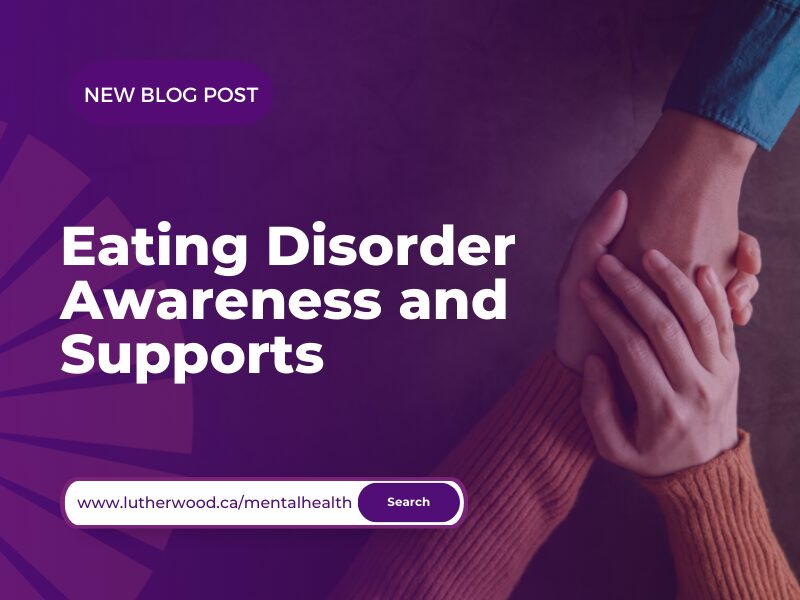Eating Disorder Awareness and Supports

Eating disorders are a sensitive and very serious topic that are often even more complex when it comes to youth. Since the first week in February is recognized as Eating Disorder Awareness Week (EDAW) by the National Eating Disorder Information Centre (NEDIC) in Toronto, it’s a good time to expand our awareness and understanding of eating disorders, know what signs to look for and when to reach out for professional help.
What is an Eating Disorder?/Types of Eating Disorders
According to the American Psychiatry Association, an Eating Disorder is defined as “behavioural conditions characterized by severe and persistent disturbance in eating behaviours and associated distressing thoughts and emotions. They can be very serious conditions affecting physical, psychological and social function.”
There is no single cause for eating disorders, and each individual’s experience is unique. Some contributing factors can include, but aren’t limited to, genetics, biochemical factors and family and social influences. Eating disorders are considered mental illnesses and can be life-threatening if left untreated.
Some of the most common eating disorders include:
- Anorexia Nervosa – typically occurs during puberty and usually centres around restrictive eating, excessive exercise, weight loss, and a powerful fear of weight gain or becoming fat.
- Bulimia Nervosa – appears as a cycle of periods of restrictive eating, followed by periods of binge eating and purging. Purging could look like self-induced vomiting, abuse of laxatives, excessive exercise or restrictive eating after a binge.
- Binge Eating Disorder – not to be confused with overeating, binge eating is classified as the consumption of an unusually large amount of food in a short period of time and often feeling out of control and unable to stop.
Warning Signs and How to Help
Common symptoms of eating disorders can include undereating and weight loss, anxiety, obsession over appearance and weight, withdrawal from social situations, hair loss, excessive exercise and more. If you notice concerning behaviour in your child, it’s important not to blame them or yourself and to not comment on their weight or appearance. Educate yourself, make it clear that you are a trusted support person who is there for them if they need help or to talk, and encourage them to get professional help if needed. Realize that this is a complex problem that will not go away overnight and requires unconditional love towards your child, and potentially help outside of what you are able to provide, and that is alright.
Local Resources
If you suspect your youth may have an eating disorder, our local branch of CMHA Waterloo Wellington has Services for Eating Disorders that can get you started on next steps to help you and your family begin to heal.
Instagram Feed
“I’m proud to be part of an organization that supports the community. The staff that I work with are wonderful and give me the sense that I am home. It gives me immeasurable pride when anyone asks me where I work, and I can say that I am working at Starling.”












